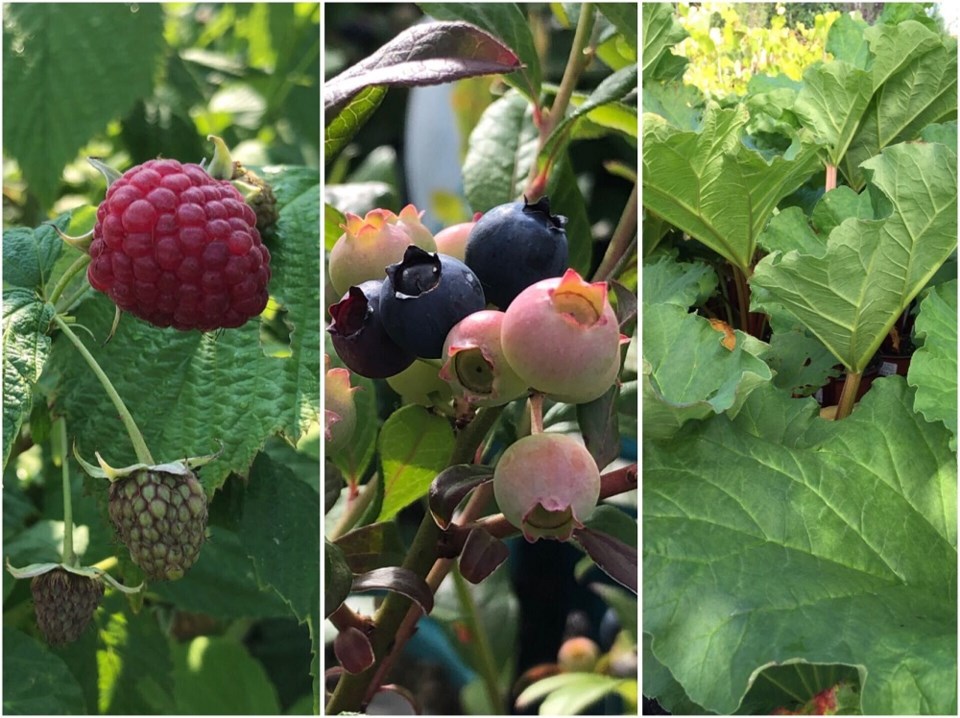This weekend it seems like we might finally be seeing a slight warming trend.
I see 15°C days in the forecast, with lows down to 4°C, so if you are anxious to get a few things into the ground, this might be the time.
Small fruits are fine to set out now, and if they are established plants in at least gallon-sized pots, so much the better. Edible currants, tayberries, josta berries and gooseberries can now be planted. The Finnish variety of Hinnomaki gooseberries, both red and yellow, are the most mildew resistant and produce wonderful large berries.
You’re safe to plant blueberries as well, but make sure you have two different varieties for pollination. To spread out your harvest period, plant some early, some mid-season, and some late varieties.
Elliot, for example, is the latest variety to produce fruit well in our area. Blueberries love an acidic, well drained soil, so I recommend mixing about 50 per cent fine fir or hemlock bark mulch mixed with your soil in the planting holes.
As a matter of fact, all small fruits and perennial vegetables would benefit from this soil enhancement.
Raspberries are fine to go in, and its best to set out pre-planted container grown canes, however bare roots can also be planted now but will need a little more care.
For the best success with your bare root raspberries, cut the stems back to about four inches (10 cm) above the roots, dip the whole plant into a slurry containing a good root starter and plant them in a very well drained soil mix, making sure to bury them to just above the roots. This will allow new shoots just above the roots to develop more quickly.
Everbearing raspberries, like Cascade Delight, Autumn Bliss, and the yellow Fall Gold, will produce some fruit this summer, while main season varieties like Tulameen and thornless Joan J. will develop new growth over the summer to provide fruit next year.
Vining edibles like thornless boysenberries, loganberries, and blackberries should be planted now to become well established and develop new growth which will produce fruit next spring and summer. It's best to grow them on a trellis or wire framework for optimum berry production and easier maintenance. It’s also an ideal time to pop your grapes in to get them established.
Perennial vegetables like rhubarb, horseradish, and Jerusalem artichokes can be planted now for years of enjoyment, however with smaller plants, it may take a couple of years before you’re harvesting very much.
Hold off on your strawberries until the soil temperatures really warm up, and remember, everbearing varieties will provide a good deal of fruit later this summer, while the main season varieties need a full year of growing in order to give you lots of fruit next summer.
Small fruits are such a great garden investment; with proper care, they will produce for years and with today’s grocery prices, that’s a good thing.



